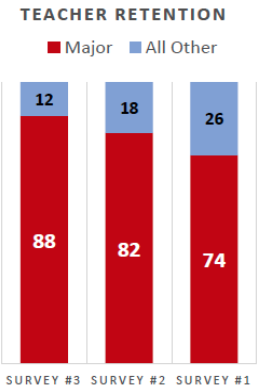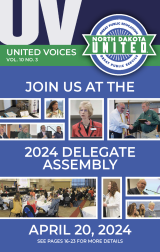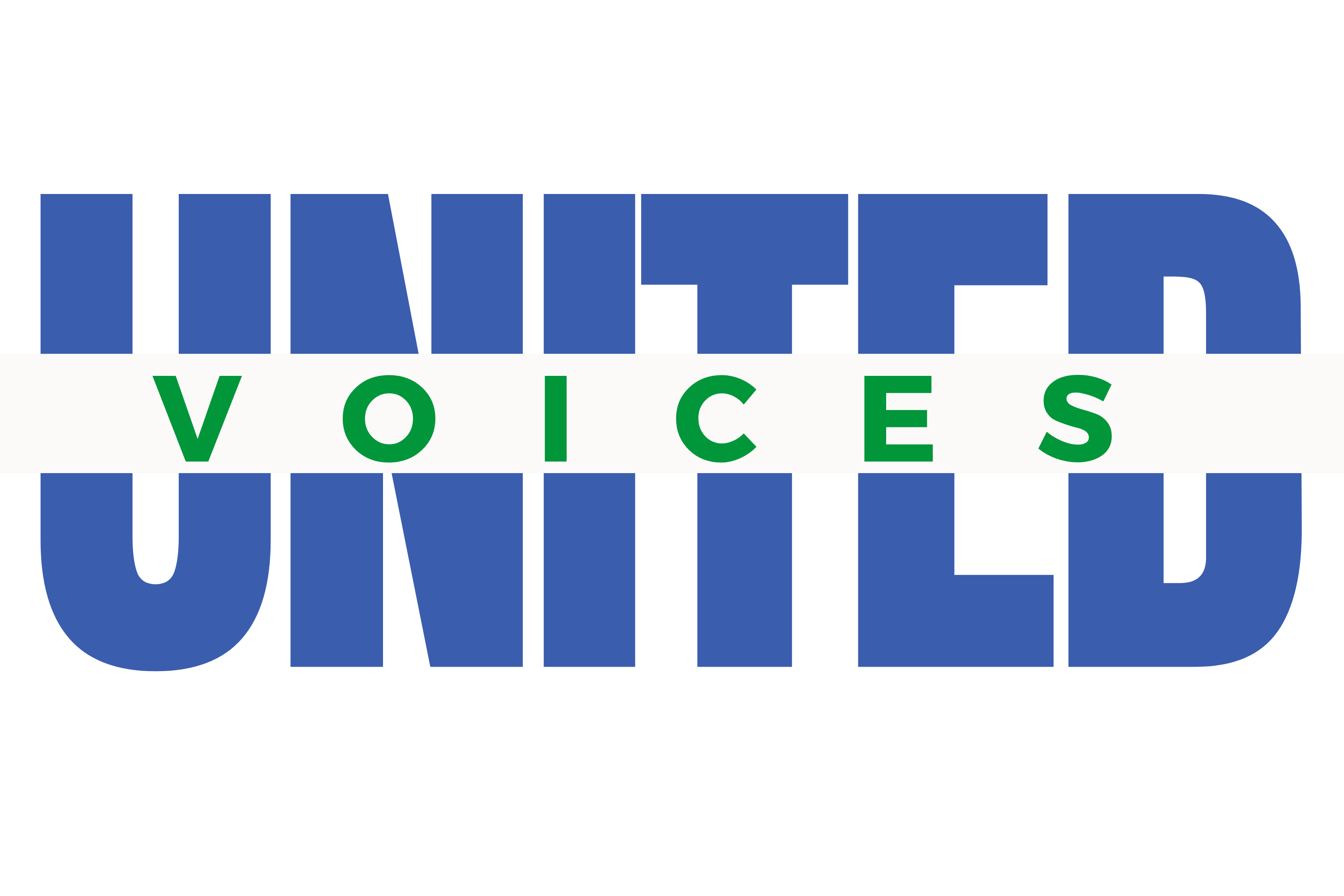Key Takeaways
- Only one in five (19 percent) of educators under the age 30 and one in four (24 percent) between the ages of 30-39 say they plan to retire in the education field.
- A significant share of current North Dakota educators actively considering leaving the education profession.
- In the eyes of the educators, the solution is simple: higher wages that reflect their professional commitment, and more direct and tangible support from district administrators and elected officials.
In the last 22 months (about two years), North Dakota United has been tracking the teacher retention issue, and the data clearly shows the problem is not going away.
The latest survey was conducted between Nov. 7-14, 2023, via an online platform where North Dakota United and the North Dakota Department of Public Instruction contacted educators via email and text. In total, 1,098 North Dakota educators completed the survey; results are weighted by gender, age, region and building type to ensure results are reflective of the North Dakota education community. The margin of error is plus or minus 2.8 percentage points.

Two questions clearly demonstrate the mindset of North Dakota educators and teacher retention. In question 13, we find 93 percent of respondents say that when they were first hired, their plan was to stay in the profession and retire from it. When asked about today, just 40 percent say they are most likely to retire in the education profession. The 50-percentage point decline reinforces that teacher retention is indeed a major issue.
The crosstabs on age show the issue is even more dire. Only one in five (19 percent) of educators under the age 30 and one in four (24 percent) between the ages of 30-39 say they plan to retire in the education field. This decline is in stark contrast to the same young respondents who said that when they entered the profession, they planned to retire from it (85 and 94 percent respectively).
This dramatic decline is not a rural or urban issue, but a statewide issue. Region, gender and building type did not show much variance, as demonstrated by the age of the respondents.
Question after question in the survey (no matter how asked or framed) show a significant share of current North Dakota educators actively considering leaving the education profession. And in the eyes of educators, there has been zero progress the last two years; if anything, not seriously addressing the problem has solidified their views about leaving the profession.
Identifying a problem is easy; the latest survey of North Dakota educators clearly demonstrates teacher retention is a major problem, and it is not going away. Solutions are harder. In the eyes of the respondents, the solution is simple: higher wages that reflect their professional commitment, and more direct and tangible support from district administrators and elected officials.
The data shows North Dakota educators are looking for bold solutions to keep educators in the profession, not nibbling around policy edges. This is demonstrated by comparing intensity levels for student-loan forgiveness versus higher wages. When isolating educators under age 40, we see about an only +20 margin between the two intensity levels of “very important” and “not important” when it comes to student loan forgiveness, compared to the overwhelming +75 margin on higher wages.
The disparity between the two is even more evident when educators were asked what the “most important” factor to keep educators in the profession. Almost half (46 percent) of all respondents said higher wages were most important, compared to just 2 percent saying student-loan forgiveness.
Educators also want direct support from administrators and elected officials. Although higher wages were the most important factor by a large margin, coming in second at 19 percent (and the only option besides higher wages in double digits) was support from administrators.
And support from administrators has the strongest intensity of any of the factors to keep educators in the profession, including wages; 80 percent said this was a “very important” factor. This number is consistent with all age groups and other key demographics. Support from legislators was at 67 percent “very important,” the third highest of the seven factors measured.
Compounding the problem, educators do not feel like district administrators, school boards and elected officials respect their opinions and experience. The question 18 and 19 series of the topline show widespread feelings on this lack of respect – 78 percent of educators feel elected officials do not respect their opinions and 75 percent feel they do not respect their experience. It should be noted educators differentiate between building administrators and district administrators when it comes to respect; 78 percent of educators say building administrators respect their experience, while only 53 percent say district administrators respect their experience.








